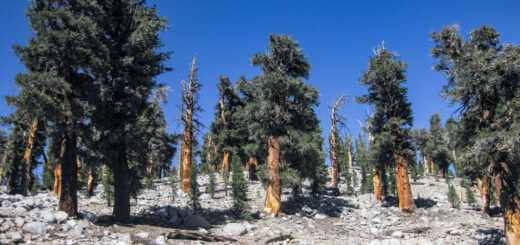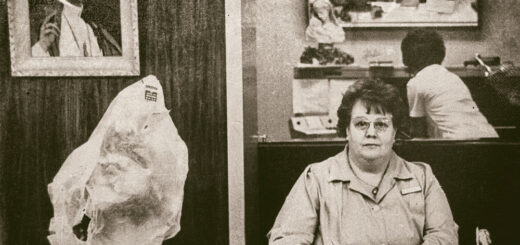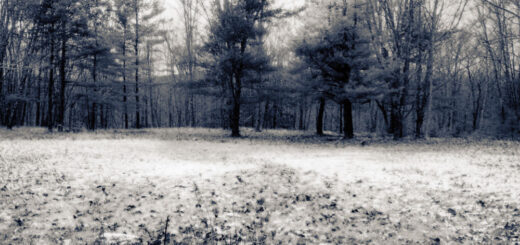A Dead Cat
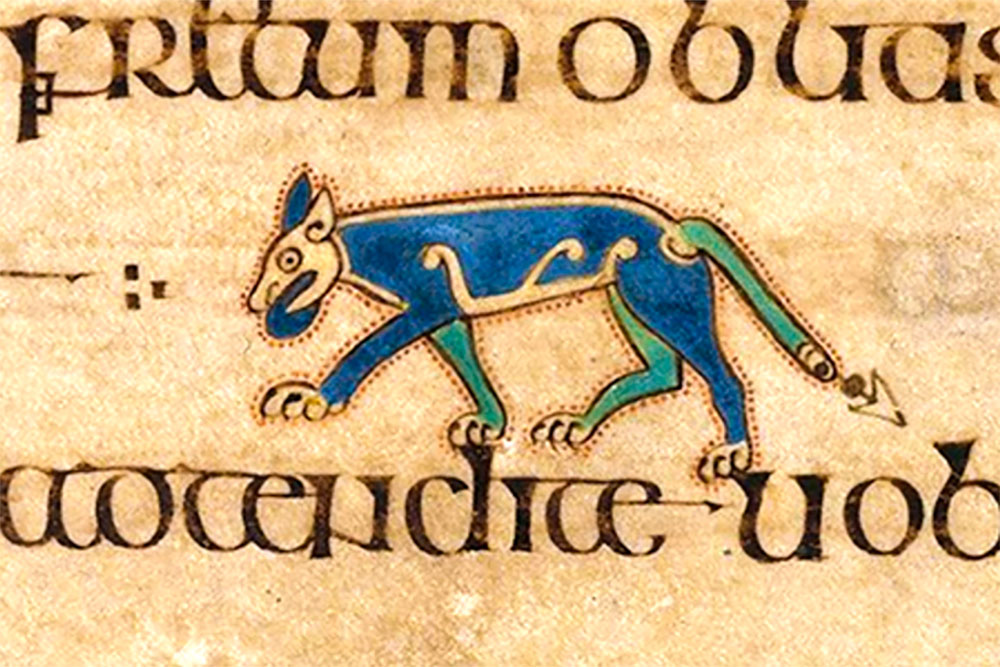 Stories are like weeds—they come up everywhere and unexpectedly. Sometimes when I’m reading, I’ll nod off and find myself in the middle of a story that hasn’t been written yet. In that shadowy territory between waking and sleeping, I can never tell if it’s a story I myself haven’t written yet or if it’s a story somebody else hasn’t written yet. A story is just “out there” in dreamland until it gets snagged in a telling of it. This sort of thing happens in waking life too. Just the other day, I was out taking pictures in the enclosure of an old graveyard in West Durham and a memory came back demanding to be recounted. So here goes.
Stories are like weeds—they come up everywhere and unexpectedly. Sometimes when I’m reading, I’ll nod off and find myself in the middle of a story that hasn’t been written yet. In that shadowy territory between waking and sleeping, I can never tell if it’s a story I myself haven’t written yet or if it’s a story somebody else hasn’t written yet. A story is just “out there” in dreamland until it gets snagged in a telling of it. This sort of thing happens in waking life too. Just the other day, I was out taking pictures in the enclosure of an old graveyard in West Durham and a memory came back demanding to be recounted. So here goes.
More than thirty years ago. Twilight. Saint John’s Eve. A lonesome road in Connemara, West of Ireland. Blasting wind, spitting rain. I am spending the summer out here on a small, remote farm. The family living in this place are native speakers of Irish. They are my hosts and are generously helping me to learn the language. They are away for the evening and I am lonely sitting around this empty house. The voices in my head want to speak English, so to get away from them, I decide to go for a pint at the village pub, where only Irish is spoken. It’s a couple miles away on a lonesome road. I will have to walk it.
I head out into the wind and rain. The gray sky is a piece of the cold Atlantic flung up in the wrong place. Not far along the way, I come upon a dead cat in the middle of the road. Probably hit by a car. No marks on the cat’s white body, except a small gash on the head and a scarlet emblem. One eye is open, looking up at me as if it’s just forgotten how.
I recognize this cat. Her name is Pangur. She belongs to my hosts and is about to have a litter of kittens. Or was. Everybody was looking forward to it. My hosts love this cat. I feel bad for them. They will be heart-stricken. Then a glimmer of hope arises. Cats around here all look the same, especially on a gray evening of wind and rain. Maybe this isn’t Pangur. I give the dead cat a closer inspection. Alas, the marbled pink and black skin on the nose is distinctive. No other cat around here has that marking. It’s the family cat alright. It’s Pangur.
“Pssss-pssss-pssss, hey kitty,” I say, as if one eye open and blood oozing from her head is simply this kitty’s way of taking a nap in the middle of a lonesome road on a cold rainy evening. “Pssss-psssss-pssss.” No response. Pangur is really dead—marbh. It’s the first word I ever learned in Irish. This is the first time I have recourse to use it.
What to do? Should I just keep walking along this lonesome road to the village, forget about the dead cat, and try to enjoy my pint? Then I think about my hosts. They will return home shortly. They will pass this spot and suffer the shock of seeing their beloved Pangur dead in the middle of the road. I can’t bear this thought. I turn around and go back to the farm.
I find a shovel in the shed and take it with me to bury Pangur along the side of the road. I dig a hole in the boggy earth. The cat’s body is already stiff. It weighs more than expected. I lay the remains in the hole—already filling with water—and close the grave. The evening has grown grayer still and the rain has gotten worse. I don’t feel like going to the pub anymore. I head back to the farmhouse and call it a night.
Next morning at breakfast I break the sad news to the family. I tell them about finding Pangur dead in the middle of the road. I tell them about getting the shovel and digging the hole and putting poor Pangur in there and filling it. I tell them how bad I feel. They listen politely, all of them smiling. I’m thinking they handle the death of a pet with far greater fortitude than I would be able to. And that’s when she walks in through the back door: Pangur, bigger than life and getting bigger still with a litter of kittens. I had buried some other cat.
I hadn’t thought about Pangur in more than thirty years, but there she was again, now in an old graveyard in the Catskill Mountains, three thousand miles from her home, having been transported by Memory across the abyss and arisen, for a second time, from the dead. And that’s my story.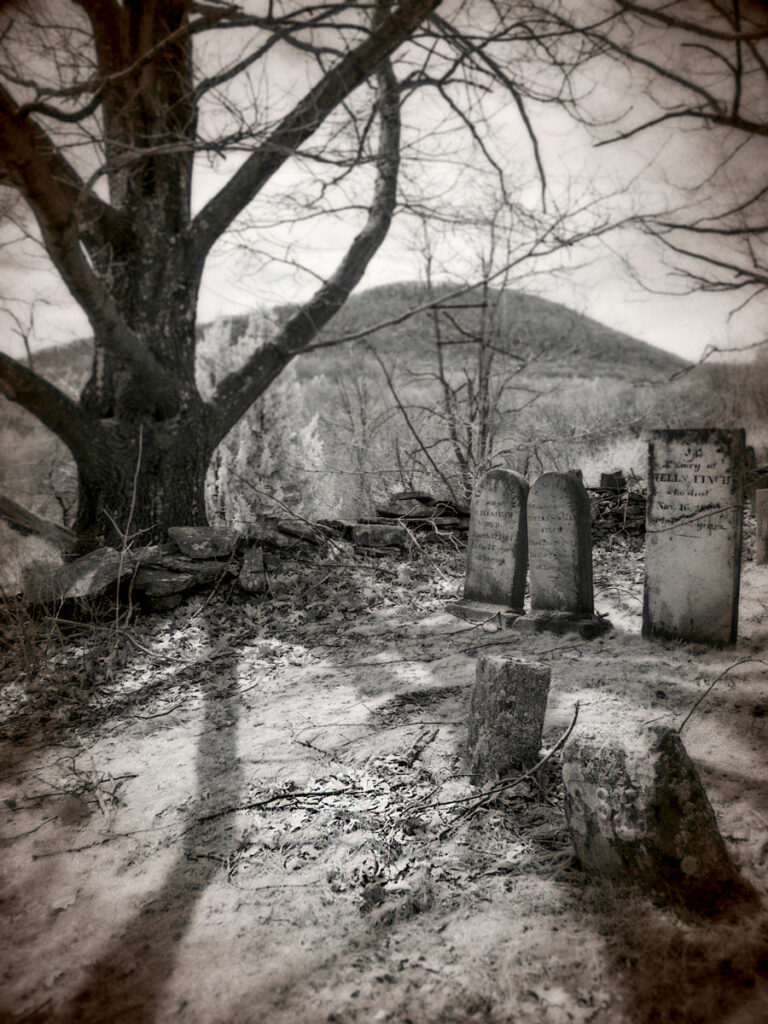
©John P. O’Grady
Originally appeared in The Mountain Eagle on December 4, 2020
